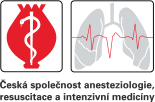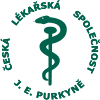Anesteziologie a intenzivní medicína, 2005 (vol. 16), issue 6
A comparison of the effectiveness of continuous positive airway pressure and high-frequency jet ventilation applied by naso-oral mask in patients treated for pulmonary oedemaIntensive Care Medicine - Original Paper
P. Čandík, E. Drbjáková, I. Lakatoš, P. Toya, J. Šalantay, P. Čičatko
Anest. intenziv. Med. 2005;16(6):284-290 
Objective:Comparison of continuous positive airway pressure (CPAP) and high-frequency jet ventilation applied by naso-oral mask (HFJV-M) in patients treated for cardiogenic pulmonary oedema (PO). Design:Retrospective study. Setting:Department of Anaesthesia and Intensive Care Medicine. Material and Methods:A group of 196 patients admitted for PO were stratified to 3 subgroups in accordance with the seriousness of the PO. The decrease in spontaneous respiratory rate, oxygenation, length of ventilatory support and length of stay in the ICU were used as indicators of treatment effectiveness (CPAP...
Predictive factors of failure of non-invasive positive pressure ventilation in patients with acute respiratory failure due to exacerbation of chronic obstructive airway diseaseIntensive Care Medicine - Original Paper
P. Matuška, O. Pilařová, Z. Merta, J. Skřičková
Anest. intenziv. Med. 2005;16(6):291-295 
Objective:Identification of predictive factors of failure of non-invasive positive pressure ventilation (NPPV) in patients admitted to the respiratory ICU with acute respiratory failure (ARF) due to exacerbation of chronic obstructive airway disease (COPD). Design:Retrospective analysis. Setting:Department of Respiratory Diseases and Tuberculosis of University Hospital. Methods:We performed a retrospective analysis of patients admitted to the respiratory ICU with ARF due to acute exacerbation of COPD treated by non-invasive ventilation using a facemask. We evaluated the effect of NPPV during the...
Administration of recombinant activated factor VII (rFVIIa) in non-haemophiliac patients in the Czech Republic - analysis of selected data from the UniSeven registerIntensive Care Medicine - Original Paper
V. Černý, J. Blatný, L. Dušek, P. Brabec
Anest. intenziv. Med. 2005;16(6):296-304 
Objective:Analysis of data on administration of the recombinant activated factor VII (rFVIIa) in non-haemophiliac patients in the Czech Republic. Design:Analysis of prospective data from a computer databasis. Materials and Methods:The UniSeven register data from 2001 till 31/05/2005. Results:During the studied period, 197 cases of administration of rFVIIa were entered in the database, of which 180 were cases of administration of rFVIIa in life-threatening haemorrhage (LTH) and in 17 cases rFVIIa was administered as prophylaxis/prevention of LTH. The most frequent reasons for administering rFVIIa...
The role of linezolide in the treatment of resistant gram-positive infectionsIntensive Care Medicine - Original Paper
P. Dlouhý, I. Herold, M. Kolář, J. Beneš, P. Cetkovský, T. Doležal, D. Jahoda, M. Kouba, I. Novák, O. Nyč, J. Pilnáček, Z. Ráčil, T. Sechser, P. Ševčík, P. Švihovec
Anest. intenziv. Med. 2005;16(6):305-312 
Incidence of gram-positive infections caused by bacteria resistant to commonly used antibiotics has been on the increase in the past decades. Resistant strains appeared in the Czech Republic later than in other countries, however their number has been increasing and the use of new antibiotics is becoming necessary. The greatest increase of incidence can be seen in infections caused by methicillin-resistant S. aureus and coagulase-negative staphylococci. Vancomycin-resistant enterococci are usually found in hemato-oncology patients. The curative use of vancomycin is limited due to its narrow therapeutical range, nephrotoxicity and limited penetration...




